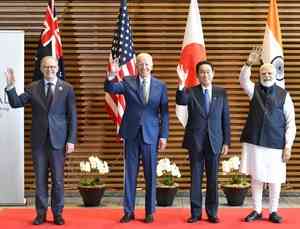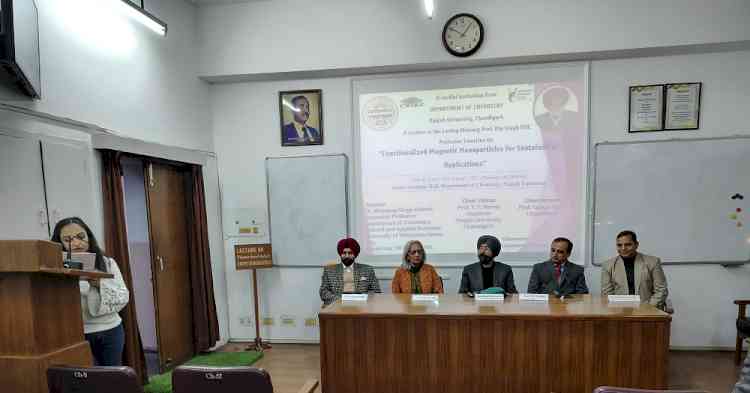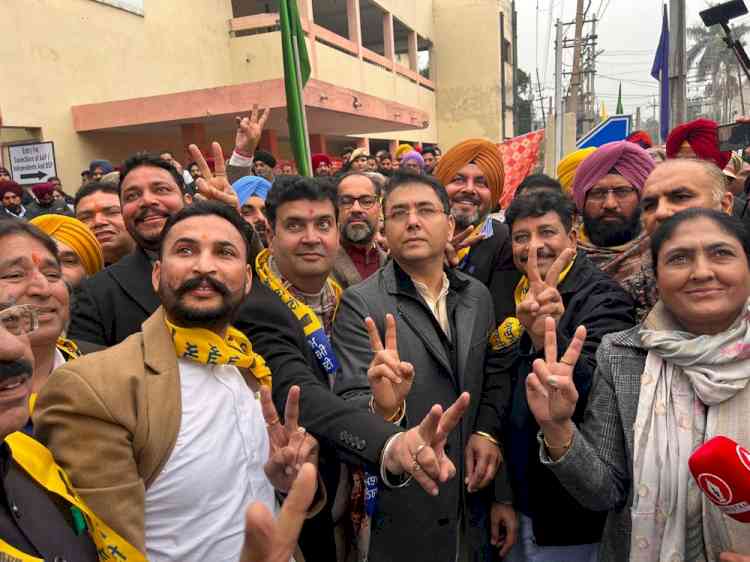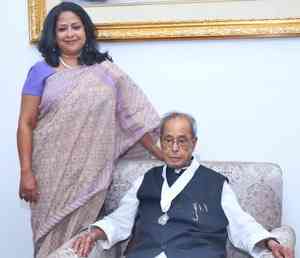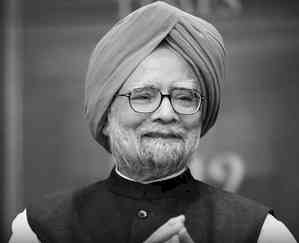Conservatives have thrown in the towel despite Sunak's best efforts
The mood is "defeatist" in the corridors of political power in London. Ministers in Prime Minister Rishi Sunak's cabinet confided to the BBC "nobody cares any more" in the ruling Conservative Party and that it is "in the last chance saloon".
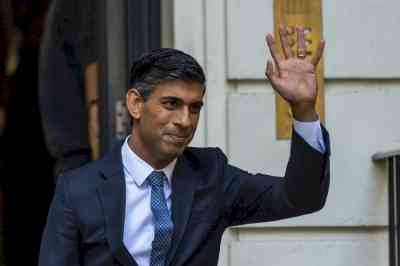
London, Dec 24 (IANS) The mood is "defeatist" in the corridors of political power in London. Ministers in Prime Minister Rishi Sunak's cabinet confided to the BBC "nobody cares any more" in the ruling Conservative Party and that it is "in the last chance saloon".
2022 has been one of the most bruising years in the Conservatives' history. former Prime Minister Boris Johnson, lacking substance, full of scandals, but a great survivor, finally bit the dust in July after a three-year roller coaster ride. He was succeeded by Liz Truss, described as "a human hand-grenade", who predicted self-destruction in 44 days, thus setting a dubious record for the shortest occupancy of 10 Downing Street.
Enter Sunak, who the Conservative rank and file had rejected in the summer in electing Truss as party leader. Only seven years in politics, of Indian origin in a predominantly white-skinned party, historically right-wing and racist. An act of desperation in an option-less organisation, albeit the elevation was decided by MPs without being referred to the grass-root membership.
Between 2010 and 2015, the Conservatives were in coalition with the Liberal Democrats. Ed Miliband, who surprisingly defeated his elder brother David to become leader of the Labour Party, was endowed with intellect, but not incisiveness. He not only failed to dislodge Conservative Prime Minister David Cameron; but the latter went on to form a single party government in his second term. Complacency and overconfidence, though, got the better of him.
Having kept Scottish nationalists at bay in a referendum vote on Scotland's independence, he, a remainer, promised a plebiscite on whether or not Britain should exit the European Union (EU) in his 2015 election manifesto. The Conservatives were undoubtedly divided on the issue; but it is questionable if it was a deal breaker, given Cameron's decisive position.
When it came to asking the British people what they wanted, he was admittedly sabotaged by the left-wing, closet anti-EU Labour leader Jeremy Corbyn. But not taking this or Johnson's pro-Brexit campaign seriously was Cameron's, the Conservatives' and Britain's undoing.
Sunak, unlike Johnson, has so far preferred to be under the radar. His attention to detail has come as a relief to his colleagues, not to mention the civil service. He hosted gatherings for Conservative backbenchers during the football World Cup to watch England matches -- where beer flowed generously -- in a bid to shore up support among his MPs.
But the catastrophe confronting him is multiple. Britain is in economic recession; and since he was Chancellor for two and half years, his contribution to this cannot be obliterated. Escalating food and energy prices have created a rare cost-of-living crisis.
At least half a dozen major unions, including those representing essential services, are on strike. It's a winter of extraordinary discontent. The majority of Brexiteers among voters has -- according to reliable opinion polls -- transformed to a minority.
Sunak, a Brexiteer, is negotiating -- under pressure from the US President Joe Biden -- a solution with the EU, which would preserve the 1997 Good Friday Agreement in the island of Ireland.
Participation in a customs union with the EU would probably dissolve the unpalatable customs barrier erected between mainland Britain and Northern Ireland (which is a part of the UK) by what's called the Northern Ireland Protocol in the Brexit pact between the UK and the EU.
But the aggressive rump of Brexiteers in his cabinet, parliamentary party and the party base are likely to rebel against such a deal.
The BBC reported: "We know that Rishi Sunak wants to spell out more of what he stands for in the New Year."
It also said Johnson is the Conservatives' "best campaigner" who could "dominate headlines at the drop of a hat".
A section of the party are, in fact, hard at work to topple Sunak -- who doesn't give the impression of being politically experienced or a political leader -- to bring back Johnson.
When Johnson won a mid-term general election on a landslide in December 2019, it was assumed by the British press that it would be a miracle if Labour could turn around the deficit in one term.
Industrial action has some times in the past rendered the pro-working class Labour party unpopular with the deciding British middle-class.
The current public mood in Britain, though, is such that not even such inconveniences look like saving the Conservatives. Labour leader Keir Starmer seems at present to be a shoe-in as Britain's next Prime Minister.


 IANS
IANS 

